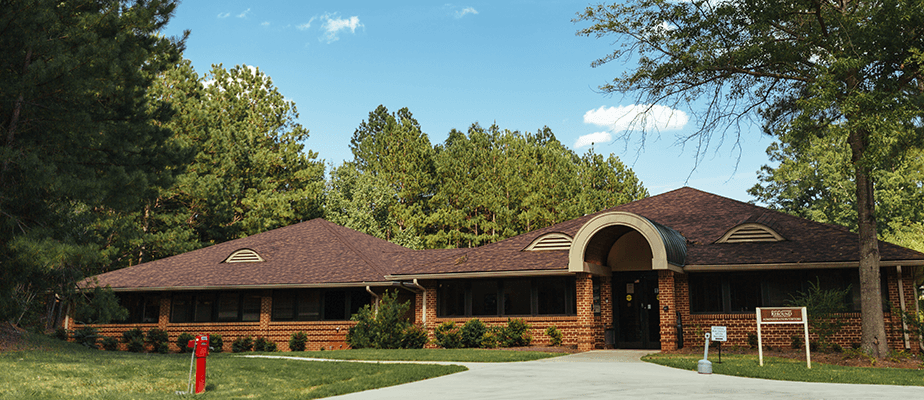Compassionate and effective help is available at Rebound. Don’t wait to seek support. Contact our team today.
More About Suicidal Ideations
Learn More About Suicidal Thoughts and Treatment at Rebound Behavioral Health in South Carolina
Suicidal thoughts, also referred to as suicidal ideation, are thoughts that an individual has about killing themself. These thoughts can range from a fleeting consideration to a well thought out detailed plan, but does not include the final act of killing oneself. Most individuals who experience these suicidal ideations do no actually carry through with them, although there are some who will make a suicide attempt. Some of these suicide attempts may be deliberately designed to fail while others are more carefully constructed to succeed. Most individuals who are thinking about suicide don’t actually want to die, they just want to stop hurting.
At Rebound Behavioral Health Hospital, we know you are suffering and in need of support to help ease the emotional pain that you are currently going through. Many times individuals with suicidal thoughts or behaviors feel trapped, that there is no other way to solve their problems. To them, suicide is the only way they can see that will put an end to the pain. As the leading treatment center for suicidal thoughts near Charlotte and Lancaster, our staff is here to help you realize that there are other ways to cope with your problems and work through the things that are causing you pain.
How to Help a Loved One
Helping a Loved One get Treatment for Suicidal Ideations
Most individuals who are having suicidal thoughts will show some kind of warning signs or signals of their intentions. The best thing you can do to prevent suicide is to recognize these warning signs and know how to respond should you spot them. Some of the warning signs of suicide may include:
- Talking about suicide
- Preoccupation with death
- Seeking out lethal means
- Self-destructive behavior
- No hope for the future
- Withdrawing from others
- Getting affairs in order
- Self-destructive behavior
Finding out that a loved one has thoughts about ending their life and recognizing some of these warning signs can be both shocking and scary. However, suicide is a serious mental health concern and should be addressed immediately, the sooner the better. While you may be concerned about talking to your loved one about this topic, remember that talking to someone about suicide does not make them suicidal. Approaching your loved one can give them the opportunity to express their feelings and may even provide them with a sense of relief from their pent-up feelings.
Finally, the most important thing you can do for anyone who has had thoughts of suicide is to offer your unwavering support. Be there with an empathetic ear if they need to talk and let them know that they are not alone and that you are there for them. Some other things you can do to help your loved one include:
- Get help for yourself at a treatment center or with a therapist so that you have time to process your own emotions
- Follow-up on treatment recommendations making sure that your loved one takes their medication and regularly attends therapy
- Encourage positive lifestyle changes
- Make a safety plan that can be followed during a suicidal crisis
- Remove potential means of suicide
Why Consider Treatment
Why Consider Inpatient Treatment for Suicidal Thoughts at Rebound Behavioral Health in South Carolina
Suicide is a desperate attempt to escape from something that has become unbearable. These individuals are in so much pain that they see no other way out. Completely overwhelmed by feelings of loneliness, self-loathing, and hopelessness, an individual who begins thinking about suicide begins to believe that this is the only way to bring relief. If these emotions are not properly addressed, they will begin to take an emotional toll on the individual and everyone around them. The preoccupation with suicide may become so consuming that it interferes with all aspects of daily life. Additionally, many suicide attempts can leave an individual with permanent and debilitating injuries. In the most severe cases an individual will successfully commit suicide and those left behind, the suicide survivors, will experience a range of feelings from anger to depression.
While treatment for suicidal thoughts and behavior will depend upon each individual’s specific situation, suicidal ideation treatment centers and hospitals have been found to be very effective. Seeking care at a treatment center will allow you to get away from the stress of daily life and let you focus completely on your recovery. Treatment staff will work with you to understand the emotions that you have been feeling and to identify the underlying cause for these suicidal thoughts. Additionally, a hospital that treats suicidal ideations can treat the symptoms of any other co-occurring mental health or substance abuse problem you may have. Through this type of treatment you will be able to once again see a bright future ahead of you.
Our Rehab Philosophy
Rebound Behavioral Health’s Rehab Philosophy
We believe the best way to treat those struggling with suicidal ideation is to use a holistic approach that treats each patient as a whole individual, not just a variety of symptoms. Our interdisciplinary treatment team at our hospital will work with you to not only identify your specific treatment goals, but help you meet them as well. Patient input is very important to us so we will include you in the entire process; we want you to be able to recognize your positive qualities so that you can use them as a foundation for your recovery. Our accepting and compassionate environment provides the perfect setting for you to begin your healing process.
Treatment Methods
Types of Suicidal Ideation Treatment Offered at Rebound Behavioral Health
As one of the best hospitals around Charlotte and Lancaster for , we have a number of treatment options available to help relieve the agony that can lead to suicidal ideation. Our holistic treatment approach includes medication management as well as a number of different therapeutic techniques, as we have found this to be the most effective form of treatment. The treatment techniques we employ at our treatment center will incorporate a number of different treatment modalities, such as cognitive-behavioral therapy, solution-focused therapy, the recovery model, and client-centered reality based therapy. The type of therapy you receive will be determined based upon the results of your initial assessments, which will be completed within 72 hours of your arrival at our treatment center. Additional treatment methods for suicidal ideation may include:
Medication may be used at the beginning of treatment in order to decrease symptoms related to your suicidal ideation, which enables you to better engage in the therapeutic process. Many people can reduce their medications as they learn new coping strategies to handle stresses in life. Others however, may need longer-term medication to help with the symptoms of another mental health disorder. You will be seen by your doctor each day for medication management.
Individual therapy is provided to all of our clients at least once per week to allow them the opportunity to meet one-on-one with a therapist to discuss any issues that may be of particular concern to them. You are welcome to as many additional individual sessions as you need.
Group therapy is a large part of the recovery process here at Rebound Behavioral Health Hospital. Group sessions are held multiple times a day, and cover a wide range of topics. These different groups are designed to allow patients to connect with other individuals, gaining additional insight about specific issues as they relate to suicidal thoughts. Some of the different groups at our treatment center for suicidal ideation consist of process groups, psycho-educational groups, and skills-based groups.
Family therapy is another key component for recovery from suicidal ideation at our treatment center. Family sessions are used to address family dynamics that may be related to your symptoms, explain the different types of treatment, and allow all members of the family the chance to process their emotions related to the current situation. On Sundays, we hold family education sessions to teach loved ones about mental health and suicidal ideation. Additionally, we help connect family members to appropriate support in their area and community resources they can utilize to better cope with their loved one’s symptoms.
Rebound also uses experiential methods to help work through suicidal ideation and co-occurring problems outside of traditional therapeutic modalities. These include:
- Music therapy
- Pet therapy
- Relaxation therapy
- Spiritual therapy
- Massage
- Recreational therapy
- A.A. and N.A.
Discharge & Continuing Care
Maintaining Your Mental Health While Suffering from Suicidal Thoughts
As your time for discharge draws close, you’ll meet with a discharge planner and your treatment team to determine the next best steps in your care. Many people opt to step down from our inpatient services into our outpatient services. This will allow you to slowly reintegrate back into your community while focusing on your recovery during the day. Other people may have made enough progress at our treatment center to be ready to return home with referrals to traditional outpatient therapy and community resources are the Charlotte and Lancaster area.

















